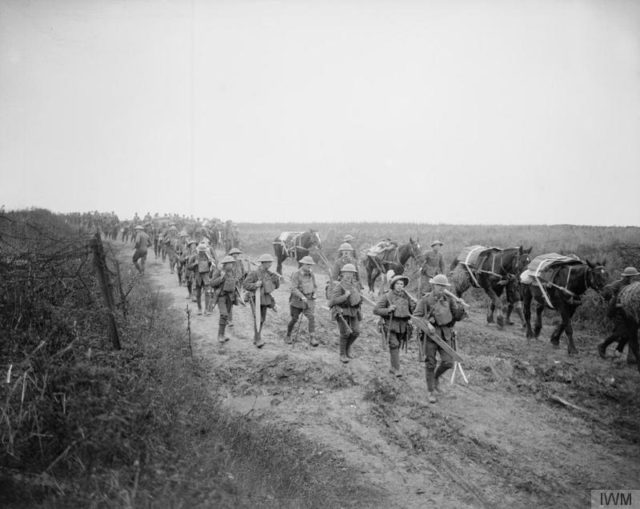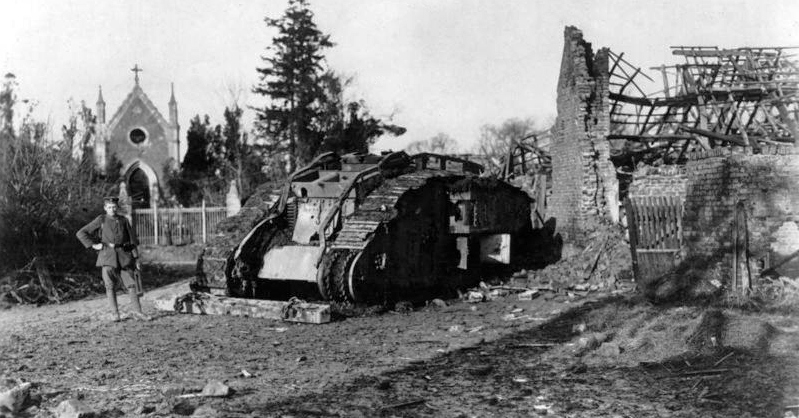In a top secret move, 350 tanks were to take Flesquières from the Germans in an experimental attack.
Historians have struggled to understand how the Germans knew about the attack in advance and with enough warning to bring in reinforcements and stop the British advance. Finally, 100 years after the attack, historians can now say that British soldiers captured by the Germans, spilled the beans.
Six soldiers from the 36th Ulster Division were captured by Germans in a trench raid just two days before the attack.
The Ulster Division had been one of the most patriotic in the British Army. Three years of fighting reduced the ranks to the point where they were recruiting from the Catholic areas in Ireland, filled with people sympathetic to the independence movement. The Germans had little trouble getting information about the attack from their prisoners.
In the interrogation report, published in Deborah and the War of the Tanks, by the historian John Taylor, it is noted: “A great animosity prevails towards England, with no interest whatever in her war aims. The prisoners say if an uprising takes place in Ireland, they would take up arms against England without more ado.”

“Because Flesquières wasn’t taken, the cavalry couldn’t go through there, the key Bourlon ridge wasn’t taken on the first day, and the whole operation eventually ran out of steam,” said Mr. Taylor.
“It wasn’t the only setback, but the betrayal of information was key to the Germans being able to repel that attack.”
Which of the prisoners betrayed the British is not known. The interrogation report does not name the subjects.
There were two Ulster Protestants, Corporal George Reginald Ball, and Private James Cope, and two others who were English, north Londoner Sergeant William Harold Whitaker and Lance-Corporal Frederick Charles Rowe.
The captured unit also included two Irish Catholics, who Mr. Taylor believes may have harboured resentment about the suppression of the Easter Rising by Irish nationalists the previous year.
One was Private Neil McCauley, 28. The other was Private Laurence O’Brien, 26.
“However some of the men were angry about the situation in Ireland, and about their thankless posting, it still seems extraordinary that they could have passed on such sensitive information to the enemy, knowing it would endanger the lives of their own friends and fellow countrymen,” said Mr. Taylor.
